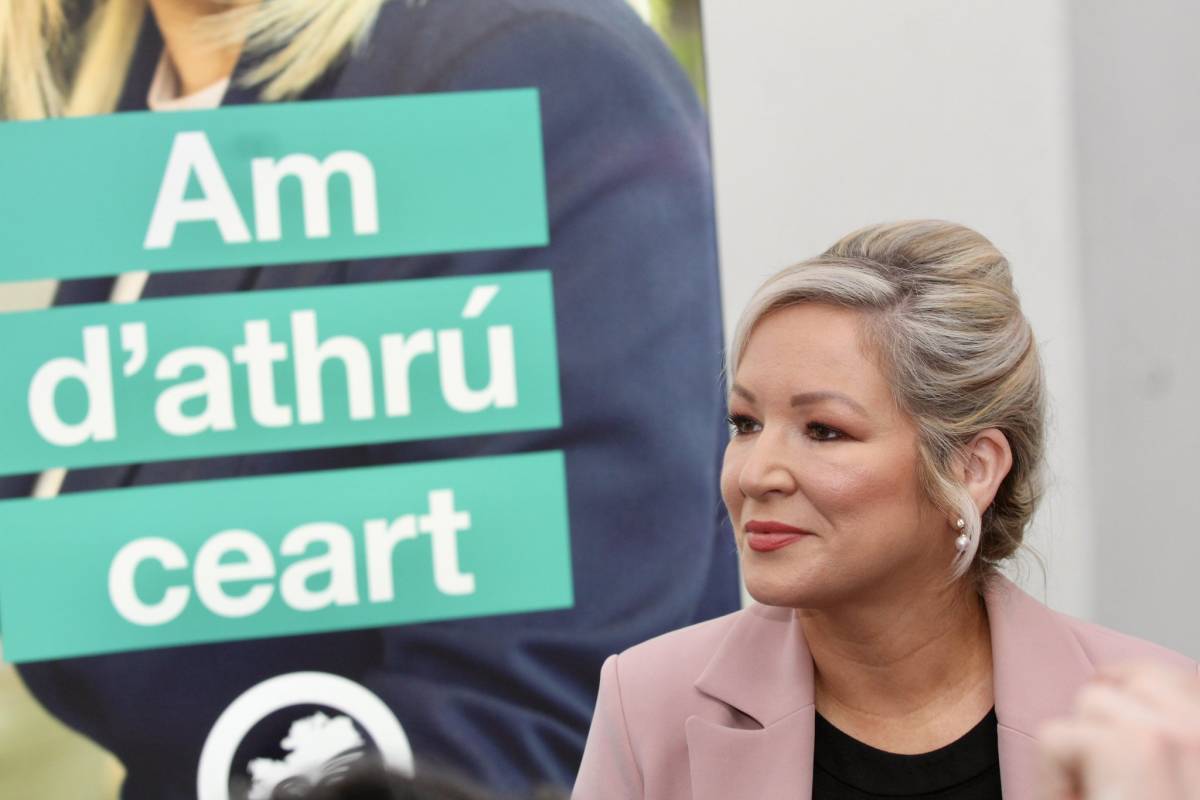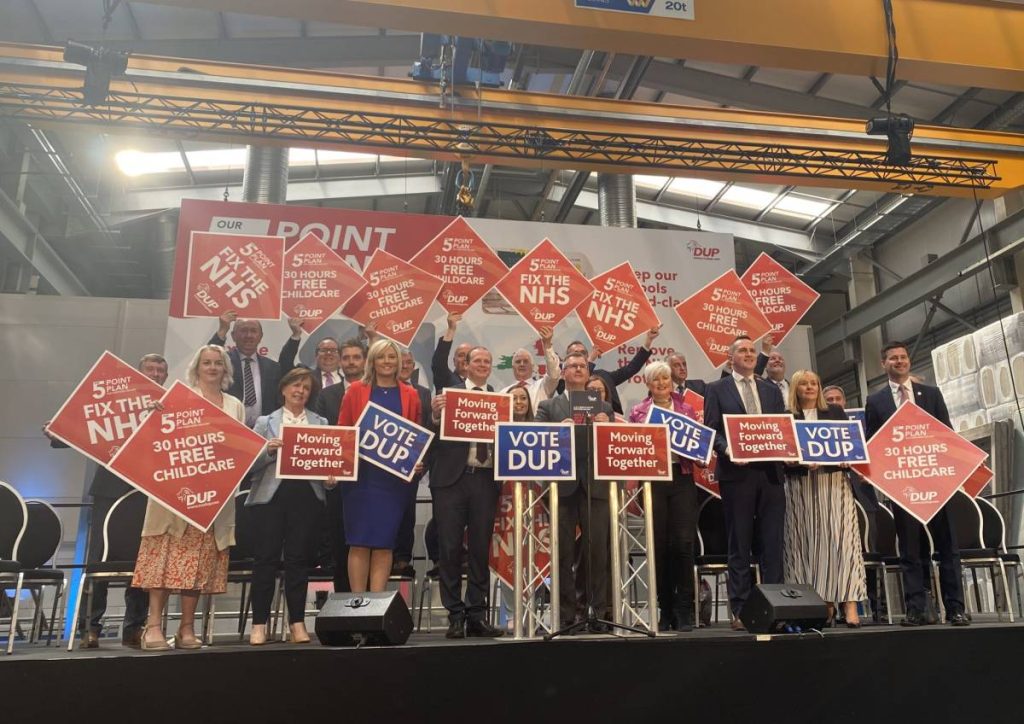Sinn Fein is entitled to first minister post in Belfast for the first time since Northern Ireland was founded in 1921…reports Asian Lite News
Nationalist Sinn Fein has won the most seats in the Northern Ireland legislature for the first time in history, UK media reported on Saturday.
According to Sky News, Sinn Fein has won 27 seats in the 90-seat Assembly, pushing the Democratic Unionist Party (DUP) with 24 seats into the second place and becoming the first nationalist party to take control of Northern Ireland’s legislature.
The broadcaster noted that the DUP had lost ground among unionists due to its reaction to Brexit and North Ireland trading arrangements. This split the vote between three unionist parties.
Ireland was separated into Northern Ireland and Southern Ireland by an act of the parliament in 1921. In 1922, Southern Ireland became the Irish Free State, which in turn became the independent Republic of Ireland in 1948. Northern Ireland remained part of the United Kingdom.
The historic win means Sinn Fein is entitled to the post of first minister in Belfast for the first time since Northern Ireland was founded as a Protestant-majority state in 1921.
“Today ushers in a new era,” Sinn Fein Vice President Michelle O’Neill said.
“Irrespective of religious, political or social backgrounds, my commitment is to make politics work,” she said.
O’Neill stressed that it was imperative for Northern Ireland’s politicians to now come together to form an Executive – the devolved government of Northern Ireland – next week. If none can be formed within six months, the administration will collapse, triggering a new election and more uncertainty.
“There is an urgency to restore an Executive and start putting money back in people’s pockets, to start to fix the health service. The people can’t wait,” she said.
“The people have spoken, and our job is now to turn up. I expect others to turn up also,” she told reporters, stressing her new government must tackle foremost a cost-of-living crisis, ahead of the debate about Irish unity.
Scottish First Minister Nicola Sturgeon, who is also leading a campaign to secede from the United Kingdom, was among the first to congratulate Sinn Fein in a Twitter post that hailed a “truly historic result”.
“There’s no doubt there are big fundamental questions being asked of the UK as a political entity right now,” Sturgeon said in an interview earlier on Saturday.
Once the political wing of the paramilitary IRA, Sinn Fein has won enough seats in the devolved legislature to nominate O’Neill as first minister – a century after Northern Ireland was carved out of the island of Ireland as a Protestant fiefdom under British rule.
Under a mandatory power-sharing system created by the 1998 peace agreement that ended decades of Catholic-Protestant conflict in Ireland, the jobs of first minister and deputy first minister are split between the biggest unionist party and the largest nationalist one.
Both posts must be filled for a government to function, but the DUP has suggested it might not serve under a Sinn Fein first minister. The DUP has also said it will refuse to join a new government unless there are major changes to post-Brexit border arrangements, known as the Northern Ireland Protocol.
Those post-Brexit rules, which took effect after Britain left the European Union, have imposed customs and border checks on some goods entering Northern Ireland from the rest of the UK. The arrangement was designed to keep an open border between Northern Ireland and EU member Ireland, a key pillar of the peace process.
But the protocol has angered many unionists, who maintain that the new checks have created a barrier between Northern Ireland and the rest of the UK that undermines their British identity.
The leader of the once-dominant Ulster Unionist Party, which struggled in the election, said many voters were tired of “angry negative unionism”.
“It may take a while to change that psyche,” UUP chief Doug Beattie told reporters.
“It may well be a supertanker that has a large turning circle. But we need to do it.”
Katy Hayward, professor of political sociology at Queen’s University Belfast, said it was “extraordinary and highly significant to have a nationalist party holding the most seats in the assembly”.
Any referendum on Irish reunification was some way off, she said.
British Prime Minister Boris Johnson’s Northern Ireland Secretary Brandon Lewis is expected to meet the party leaders in Belfast on Monday. The parties will have 24 weeks to resolve their differences or face a new election.
England, Wales and Scotland also voted in local and regional elections on Thursday, punishing embattled Johnson’s scandal-mired Conservatives but without a landslide for the main opposition Labour party.
ALSO READ-Iran: EU’s nuke talks coordinator to visit Iran over Vienna talks




